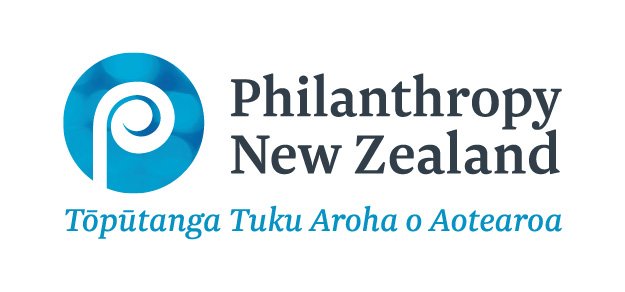
policy briefs and submissions
Briefing to Incoming Government 2024
January 2024
PNZ provided a Briefing to the Incoming Government on the philanthropic sector in New Zealand. The Briefing for Incoming Ministers (BIM) addresses the opportunities for an enhanced relationship between the philanthropic sector and government, capitalising on complementary philanthropic and government funding. The BIM also identifies areas where the sector can leverage capital funds for co-investment with government into regional growth, housing supply and a clean economy.
Election 2023
PNZ developed a statement of positions relating to the election in 2023. This focused on two key areas: driving up giving; and championing the community and voluntary sector. Acknowledging the biggest intergenerational wealth transfer in history and increased corporate giving, PNZ recommended that the incoming government adopt key actions to capitalise on more structured and private giving to progress social, cultural and environmental outcomes. PNZ also stated that the community and voluntary sector should be valued and recognised, and asserted the value in government recognising philanthropic and grantmaking organisations as strategic partners and funders operating in the same ecosystem.
Response to advice on direction of Emissions Reduction Plan (2026-2030)
June 2023
Philanthropy New Zealand | Tōpūtanga Tuku Aroha o Aotearoa (PNZ) has collaborated with the Combined Community Trusts of Aotearoa (CCT) to make a submission on the Climate Change Commission’s draft advice to Government on the second emissions reduction plan. This work was informed by the knowledge and experience of funders who are committed to climate action and who are part of the PNZ Climate Action Funders’ Network and the CCT Climate Action Working Group.
The submission overall supports the Commission’s advice whilst stressing the need for: collaboration between the government and philanthropic sectors (especially in supporting a tika and just transition); government acknowledgement of the adaptation finance gap; and government leadership in system transformation and sustainable finance.
If you’re looking for submissions on the Charities Act, click here.
Auckland Council proposed budget 2023-2024
March 2023
Philanthropy New Zealand | Tōpūtanga Tuku Aroha o Aotearoa (PNZ) made a submission on the council’s proposed budget, expressing concern at the impact of reductions in the council’s community investment.
The submission also informed the council that the philanthropic and grantmaking sector did not have the resources to pick up the shortfall in community funding that would result if the proposed budget is agreed. This was in response to the council stating that the council would support affected partners to seek alternative funding. The Auckland Council is a member of PNZ.
Charities Act review
In 2019, Philanthropy New Zealand (PNZ) made a submission on the Review of the Charities Act (the Act) to the Department of Internal Affairs (DIA) ( here). The submission was the result of consultation between PNZ and its members, providing input into key issues. In mid-May 2021, DIA re-engaged on selected topics of interest from the Act review in order to develop policy options for the Minister of CVS and consider legislative amendments. PNZ raised a range of points in a further submission and letter, making particular comment on accumulation of funds and re-emphasised the perspective expressed in 2019, that a fuller review that focuses on the purpose of the charitable sector was needed.
In 2022, PNZ made a submission on the Charities Amendment Bill, in consultation with PNZ membership and other experts in the area. It re-emphasised the need for a first principles review of the Act, as well as made suggestions and recommendations for certain provisions set out in the amendment legislation.
Overview of gaming machine sector and community funding
September 2020
Community distributions from gaming trusts are of significant interest to PNZ members as they consider the wider philanthropic and grantmaking system they operate in. Some are concerned about how this significant funding stream addresses the diversity of community needs, and question whether current operating models and frameworks support best practice in the delivery of funding. The purpose of this Philanthropy New Zealand | Tо̄pūtanga Tuku Aroha o Aotearoa research paper is to:
Collate information to broadly inform our membership about the use of gaming machine monies: the collection, and distribution of profits, and regulation and governance of gaming trusts; and
Support future discussions around any considerations for change (including a potential review of the current system of distributions).
We acknowledge that there are a range of views on this topic (as well as on problem gambling rates and Class 4 gambling venues [which we do not seek to cover in this paper]) and we do not seek to represent any agreed position of our members. In the interests of supporting better giving however, we hope the information contained in this paper supports further discussion of the issues.
We would also like to provide a channel for people to provide further feedback.
We encourage you to send your views in a format that we can collate and make publicly available in a supporting paper by the end of October 2020 to: info@philanthropy.org.nz.
Download and view – Overview of gaming machine sector and community funding – PNZ Research paper
Getting more from your investment in NZ businesses
December 2019
Philanthropy New Zealand | Tо̄pūtanga Tuku Aroha o Aotearoa is continuing to lobby for the implementation of an imputation credit refund scheme for charities who invest in New Zealand companies. Chief Executive Sue McCabe says, “we surveyed members and found there to be strong support for this kind of scheme. The current situation is inconsistent with charities’ tax-exempt status and unfair to a sector that makes a massive contribution to the well-being of New Zealanders.”
PNZ and a member group is now seeking a follow-up meeting with the Minister for Revenue Hon Stuart Nash to discuss an imputation credit refund scheme in more detail and intends to advocate more widely on this issue in 2020. This follows an initial meeting with Minister Nash late last year. The member survey also revealed mainly positive support for a minimum distribution of funds being expected from charities claiming imputation credit refunds. Accumulation is a topic of interest in New Zealand and was raised in last year’s Tax Working Group. It relates to trusts and foundations attracting tax concessions but not distributing their funds for public benefit.
PNZ and a core group of members (including representatives from J R McKenzie Trust, the Tindall Foundation, Nikau Foundation, Rātā Foundation, Foundation North, and Perpetual Guardian Trust) believe that any set rate of distribution would need to be appropriate to the New Zealand setting and different charity types (which was the main issue raised in the survey feedback) and reviewed post implementation. Member feedback suggested an annual distribution rate of between 2-3% of equity might be appropriate.
There was also support amongst survey respondents for the proposal that public accountability for an imputation credit refund scheme would be increased by ensuring that eligible charities are registered with Tier 1, 2 or 3 accounting standards and publish audited accounts.
We would welcome any views on this issue directly or you can head to our Members hub to discuss this on our Research and Policy forum. Please let us know if you wish to be involved in any forward engagement. You are also free to share this article with those you think will be interested.
What are imputation credits? Dividends paid by companies to shareholders can have imputation credits attached. This means the company passes on any credit for tax paid at the company level to shareholders. Shareholders can then use that imputation credit to offset other income tax. But, tax-exempt charities currently miss out on this benefit because they do not pay other income tax.

